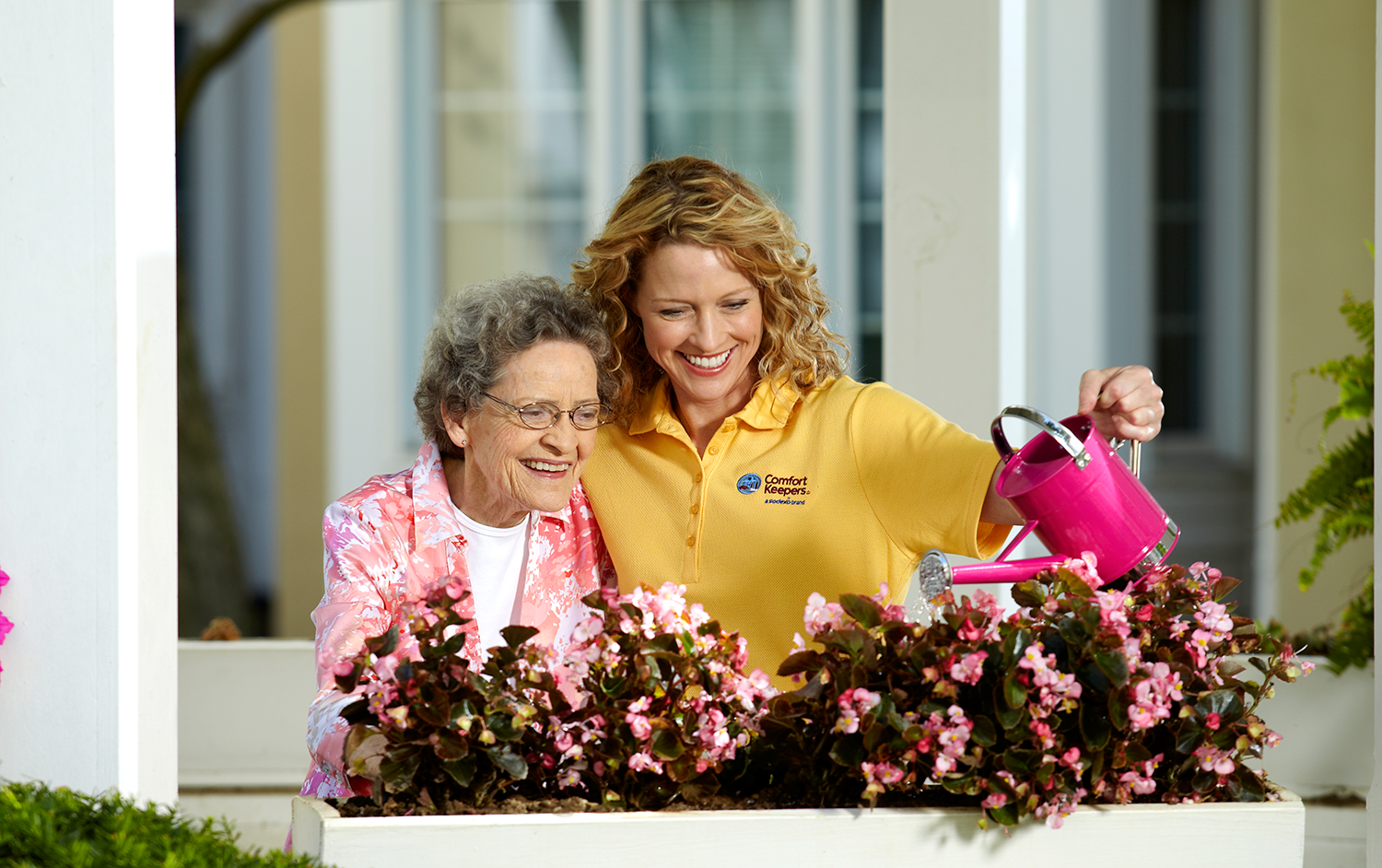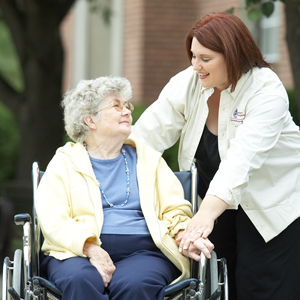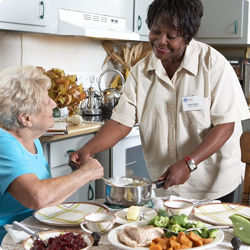Tips for Helping Seniors Cope with Vision and Hearing Loss.
Blog | December 6, 2016
Hearing and vision are the two senses we rely on most to communicate and navigate our environment. When one sense declines, we tend to rely more on the other. When both vision and hearing decline, it becomes distressingly difficult to interact with other people, and our environment.
Known as Dual Sensory Loss (DSL), studies estimate that 10%-20% of seniors experience some degree of impairment in both vision and hearing. Because it is so isolating, untreated DSL is associated with depression, cognitive decline, and poor health outcomes.
Causes
Many different factors can cause hearing loss, including genetics, medications, head injury and ear infections. Sensorineural hearing loss is caused by damage to the inner ear or auditory nerve. Conductive hearing loss occurs when something stops sound waves from reaching the inner ear, such as a build-up of fluid.
The four most common causes of vision loss are age-related macular degeneration, diabetic retinopathy, cataracts, and glaucoma, each causing different kinds of visual deficits.
Treatment and Assistive Technology
Monitoring of hearing and vision by health professionals is key to long-term retention of independence, as early detection can result in measures that can treat or slow the progress of certain conditions. Occasionally, the conditions causing hearing or vision loss are treatable with surgery or medication, such as in some cases of conductive hearing loss, or cataracts.
In most cases, however, the hearing or vision that remains is augmented with assistive devices. Hearing aid technology is rapidly evolving, offering more precisely tailored amplification than ever, as well as wireless-based functionalities that allow users to connect hearing aids with other devices such as smartphones, remote microphones, and computers. Cochlear implants may be an option for seniors meeting certain criteria, but this also requires substantial listening and communication re-training.
Low-vision assistive technology that is helpful for patients with vision loss includes hand-held magnifiers, lamps with magnification, portable readers, and handheld telescopes. Closed-circuit televisions, or CCTVs, are essentially video magnifiers that use cameras to capture images, which are then enlarged on a computer screen. These assistive vision devices can also help patients see controls of amplification devices, which can be quite small. Emerging technologies such as Google Glass and 3-D printers hold promise for facilitating interaction with the environment.
Optimizing the Home Environment for Seniors with DSL
An environment that is navigable, safe and optimal for functionality in seniors with DSL includes:
- Bright, even lighting
- Sensors that turn lights on automatically when someone enters a room
- Blinds on all windows to prevent sunlight glare
- High contrasting colours, such as a dark coloured toilet, vanity, and bathtub on white tiles
- Dark doorway trim against light walls
- Use of sound-absorbent furnishings such as heavy curtains, carpeting, and cushions to decrease reverberation, making speech easier to understand
Communicating with Seniors with DSL
Finding solutions to the communication barriers posed by DSL involves identifying what works for each individual. Taking the time to do this can result in a major improvement in quality of life. Audiological rehabilitation for individuals with DSL and their caregivers can be a good way to learn new communication and listening strategies. When speaking with your loved one:
- Gently touch their hand, shoulder or arm when initiating conversation, and indicate who you are
- Avoid having your back to a window, as makes it difficult for someone with vision loss to see your face
- Experiment with different locations, and voice volume and pitch to see what works best for the person
- Communicate clearly and slowly using plain language
- Always tell the person you are leaving
The Importance of Touch
Acquired vision and hearing loss later in life can be very disorienting and isolating. The importance of touch cannot be understated. Hugging, hand-holding and guiding can be crucial in providing a sense of connectedness with people and the environment.
- Listen, and use touch to indicate you are doing so, such as hand-holding
- When guiding a senior with DSL, let them hold your arm above the elbow and walk ahead of them
- Pause or stop to indicate a change in environment, such as stairs, doorway, chair, so they can feel the stair railing, or the door knob
- Inform the person of their surroundings, including people and other activities in the area
Developing and learning touch-based communication strategies can go a long way in breaking isolation. A system of touch-based signals can be developed collaboratively. Try fingerspelling by using your finger to trace letters on the hand or back to spell out words and sentences. A more efficient spelling-based approach, called two-hand manual fingerspelling, is outlined here.
Knowing what works best for a person with DSL, and communicating these strategies to everyone involved in care, is the key to ensuring their long-term health and independence. Our caregivers and companions can incorporate these strategies into care plans and services. Contact us today for a free consultation.
Individualized Home Care Options
Long-Term Home Care, 24 Hour Home Care & Short Term Care Options Customized for You







